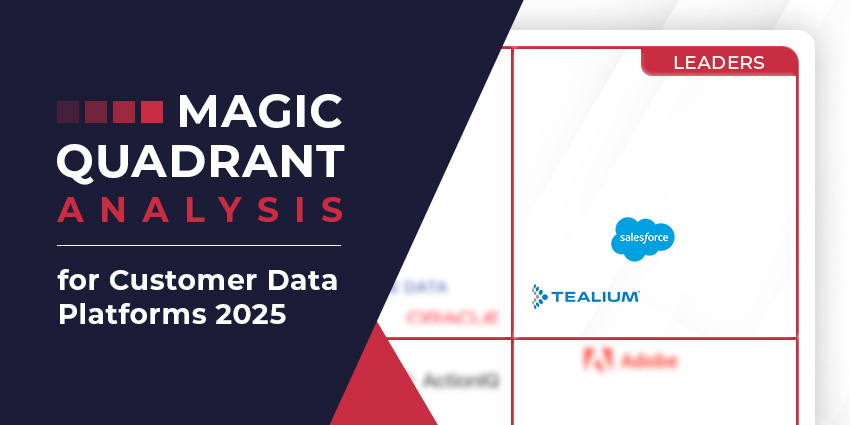It’s not just meant for journalists or scholars of history; good reporting skills are another essential component in your contact center.
Why? The answer’s simple enough – reporting means you’re collecting data at all times, and an exhaustive repository of data implies there’ll be analysis and interpretation, at some point in time, down the road. This, then, will lead to any necessary changes in strategies, and eventually a definite uptick in customer experiences. So, how do you enhance your reporting skills – and what are these skills, at their essence? Let’s find out.
What do Reporting Skills Mean for CX and Contact Center Outcomes?
Reporting skills in the context of customer experience (CX) and contact center outcomes are all about the ability to gather, analyze, and present data in a way that provides clear, actionable insights. For a contact center, this means leveraging data from customer interactions to understand trends, identify issues, and gauge overall satisfaction.
Effective reporting transforms raw data into meaningful information that can inform decision-making, drive improvements, and ultimately enhance the customer experience.
Why Reporting Skills are Essential for Better Customer Experience Insights
Without adequate reporting, customer experiences will eventually suffer. This is because ace reporting skills play a role in:
- Identifying trends and patterns: Effective reporting helps identify recurring issues and trends in customer interactions, allowing businesses to address root causes and improve the overall customer experience.
- Enhancing decision-making: Clear and concise reports provide the data-driven insights needed to make informed decisions, from strategic planning to daily operations, ensuring that decisions are based on accurate and relevant information.
- Measuring performance: Reporting skills enable the tracking of key performance indicators (KPIs) such as customer satisfaction, first call resolution, and average handling time, which are crucial for assessing the effectiveness of customer service efforts.
- Driving continuous improvement: Regular and insightful reports highlight areas for improvement, allowing contact centers to implement changes, monitor the impact, and continuously refine processes to enhance the customer experience.
- Facilitating communication: Well-constructed reports communicate complex data in an accessible way, making it easier for teams across the organization to understand customer needs and collaborate on solutions.
- Supporting accountability: Detailed reporting holds teams accountable by clearly showing performance against targets and goals, motivating employees to maintain high standards of service.
- Boosting customer retention: By analyzing customer feedback and behavior through reports, businesses can proactively address issues and improve service, leading to higher customer satisfaction and retention rates.
- Optimizing resource allocation: Insightful reports help in understanding which areas of the contact center require more resources, whether it’s staffing, training, or technology, ensuring optimal resource allocation for better service delivery.
- Enhancing customer understanding: Reports that include qualitative data, like customer feedback, offer a deeper understanding of customer needs and preferences, enabling more personalized and effective service.
- Supporting strategic planning: Comprehensive reporting provides the insights needed for long-term strategic planning, helping to align customer service goals with overall business objectives for sustained success.
How to Master Reporting Skills? Tips for Contact Center Agents
Honing your reporting skills as a contact center agent can really make a difference in how you understand and improve customer experiences. Here are some tips to get you started:
- Learn your tools: Familiarize yourself with the reporting tools your company uses. Whether it’s a dashboard, analytics software, or even Excel spreadsheets, knowing how to navigate and pull the right data is key.
- Improve presentation skills: When it’s time to share insights, make sure your reports are clear and concise. Use visuals like charts or graphs to illustrate your points—it makes the data easier to digest.
- Practice regularly: Like any skill, practice makes perfect. The more you dive into reports and analyze data, the more intuitive it becomes. Over time, you’ll develop a knack for spotting opportunities to enhance customer experiences.
- Practice critical thinking: Approach data with a critical eye. Question assumptions and look beyond surface-level numbers. Why did certain metrics change? What external factors might be influencing the data?
- Stay organized: Keep your reporting process organized and systematic. Maintain clear documentation of data sources, methodologies, and any assumptions made during analysis. This helps ensure accuracy and consistency.
- Collaborate across teams: Reporting often involves collaboration with other departments like IT, marketing, or operations. Foster relationships with colleagues in these areas to gain broader insights and align reporting efforts with company-wide goals.
- Stay ethical with data: Respect data privacy and confidentiality guidelines. Handle customer data with care and ensure compliance with relevant regulations (e.g., GDPR, CCPA). Trustworthy data practices build credibility and trust.
Avoiding Reporting Pitfalls for CX Success
Reporting skills aren’t foolproof. One common issue is data fragmentation—where data from different sources or systems doesn’t align properly. This can skew metrics and give an incomplete view of customer interactions. Imagine reporting on customer satisfaction without considering all touchpoints!
- Another challenge is data quality. Garbage in, garbage out, right? If your data isn’t accurate or up-to-date, your reports could mislead decision-makers. This often happens when there are errors in data entry, outdated information, or inconsistencies across databases.
- Then there’s the trap of over-relying on averages. Averaging out metrics like wait times or resolution rates can mask important variations. For instance, an average wait time of 3 minutes might hide the fact that some customers wait much longer, leading to dissatisfaction.
- Lastly, there’s the danger of ignoring outliers or anomalies. These unusual data points might seem insignificant, but they can reveal important trends or issues that need attention. For example, a sudden spike in complaints from a specific region could signal a problem that needs immediate investigation.
By being aware of these pitfalls — data fragmentation, poor data quality, over-reliance on averages, and ignoring outliers — you can ensure your reporting remains accurate and actionable. It’s about not just collecting data, but ensuring it’s reliable, relevant, and meaningful for driving improvements in customer experience.
Did you find this article useful? Follow us on social media for more such insights.







